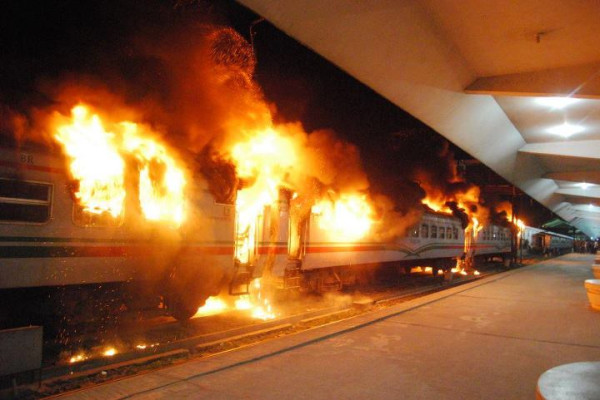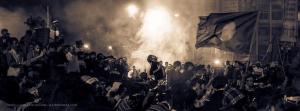
Today, it is 100 days of the detention of acclaimed photographer and cultural activist Shahidul Alam. On this occasion, Arundhati Roy, Aparna Sen, Vikram Seth, Romila Thapar, Amitav Ghosh, Shabhana Azmi, Buddhadeb Dasgupta, Nandita Das, Mohammad Hanif, Anish Kapoor among other eminent persons from across South Asia have written a letter to Bangladesh Prime Minister Sheikh Hasina Wazed demanding his immediate release. on the 100th day of his detention.

H.E. Sheikh Hasina Wazed
Prime Minister of Bangladesh
Prime Minister’s Office
Dhaka, Bangladesh
13 November 2018
Subject: Appeal for release of Shahidul Alam on 100th day in custody
Your Excellency:
As well-wishers of Bangladesh and supporters of its 166 million citizens’ struggle for dignity, social justice and prosperity, we are distressed by the continued imprisonment of photographer and cultural activist Shahidul Alam. Since the founding of the nation in 1971, the people of Bangladesh have led by example, fighting poverty, ending social injustices and being standard-bearers of participatory development. This advance has been made possible by the democratic spirit of the people, who have challenged military rulers and autocrats alike. As well-wishers of Bangladesh, we fear that these gains are in danger due to the rising political intolerance and denial of fundamental freedoms.
Shahidul Alam is a Bangladeshi citizen, but the rest of us in South Asia are also proud to call him our own, for the values of truth, justice and social equality he promotes. His work and activism are respected all over our region and beyond, with innumerable friends who admire his concern for the voiceless and marginalised. One example is his latest work highlighting the tragedy of the Rohingya people, who have been given refuge in Bangladesh by your Government.
Since Shahidul Alam was forcefully taken from his home on the 5th of August, he was remanded first in Detective Branch custody for seven days and, then held at Dhaka Central Jail at Keraniganj. He is accused of ‘hurting the image of the nation’ while reporting on protests by young students demanding road safety.
It is clear to us that the case of Shahidul Alam is being used as a means to suppress criticism by others in civil society. His arrest and continued detention appear to be manifestation of an intolerant political atmosphere, an attempt to threaten and silence the voice of Bangladeshi citizens. With the country preparing for general elections, this is a time when there should be more space for debate and discussion, not less.
As believers in the rule of law, we are shocked to learn that government lawyers continue to oppose Shahidul Alam’s release on bail using various stratagems and delays intended to deprive him of his fundamental rights to liberty and due process. Across South Asia, politicians and citizens have fought for the right to speak, and to write, and it is astonishing to us that a government today, especially one which seeks to harness technology for progress, should choose to use a law to proscribe online speech to jail a citizen.
Prime Minister,
We the undersigned urge you to ensure the release of Shahidul Alam on this, the 100th day of his detention. We look forward to Bangladesh retaining its place as an exemplar of
participatory democracy in South Asia.
Sincerely,
1. Akram Khan, London
2. Amar Kanwar, New Delhi
3. Amitav Ghosh, Goa
4. Anish Kapoor, London
5. Aparna Sen, Kolkata
6. Arundhati Roy, New Delhi
7. Ashok Vajpeyi, New Delhi
8. Buddhadeb Dasgupta, Kolkata
9. Dayanita Singh, New Delhi
10. Ina Puri, Kolkata
11. Jayadeva Uyangoda, Colombo
12. Kanak Mani Dixit, Kathmandu
13. Laila Tyabji, New Delhi;
14. Manjushree Thapa, Toronto
15. Mohammed Hanif, Karachi
16. Moushumi Bhowmik, Kolkata
17. Nandita Das, Kolkata
18. Nimalka Fernando, Colombo
19. Patricia Mukhim, Shillong
20. Pooja Sood, New Delhi
21. Rachana Singh, New Delhi
22. Raghu Rai, New Delhi
23. Rajdeep Sardesai, New Delhi
24. Ramchandra Guha, Bangalore
25. Romila Thapar, New Delhi
26. Salima Hashmi, Lahore
27. Sanjay Kak, New Delhi
28. Sanjoy Hazarika, Shillong
29. Sankha Ghosh, Kolkata
30. Shabana Azmi, Mumbai
31. Sushila Karki, Kathmandu
32. Vijay Prashad, New Delhi
33. Vikram Seth, New Delhi
34. Vrinda Grover, New Delhi













